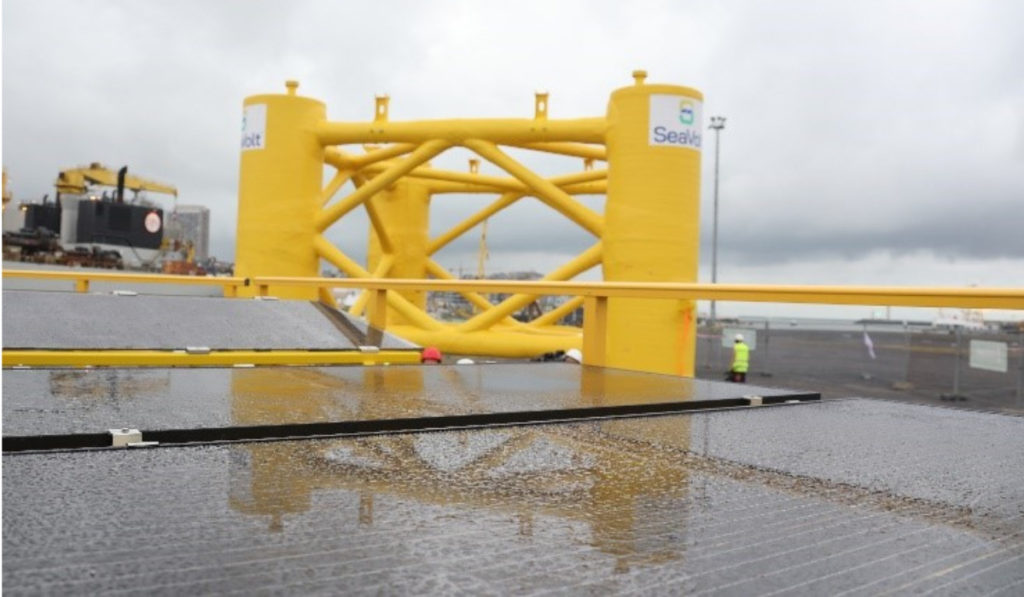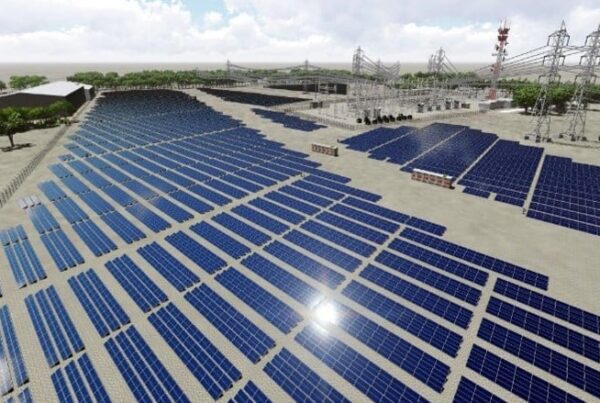
Offshore floating solar company SeaVolt – a collaboration between companies Tractebel, DEME, and Jan De Nul – has announced to install its first floating solar energy test platform in the Belgian North Sea.
The platform, containing a few solar panels for testing only, will be the first installation aimed at the large-scale development of offshore solar energy. It will gather data on the impact of waves, rain and salt sprays on various solar panels with different PV panel configurations. The effect of varying inclinations caused by waves and wind on the energy output will be monitored.
This project will determine the level of protection required to shield the solar panels from seawater and bird droppings, and the use of novel lightweight fibre materials too.
Currently located in the port of Ostend, the platform will be put into operation to gather data for at least a year starting in August.
With the increase of offshore wind projects being built in the North Sea, many offshore solar projects are being tested in the region, with the Netherlands recently seeking offshore solar capacity in its wind tenders that could give a boost to the technology in the upcoming years.
“Solar energy in the North Sea has the potential to become just as important as our wind farms when it comes to green power generation. To accelerate the development of offshore solar energy, we are investing in technology and know-how among Belgian players through our recovery plan,” said Thomas Dermine, Belgium’s secretary of state.
SeaVolt was announced in March. Moving forward, Seavolt is preparing for a large-scale demonstration project to examine the potential of integrating offshore floating solar inside an offshore wind power plant.
“With SeaVolt, and more specifically with this cutting-edge test nearing completion, we’ll be able to observe how such an installation behaves under real-life conditions, providing us with the necessary knowledge to mature and mitigate risks for future developments,” said Philippe Van Troeye, CEO of engineering company Tractebel.






